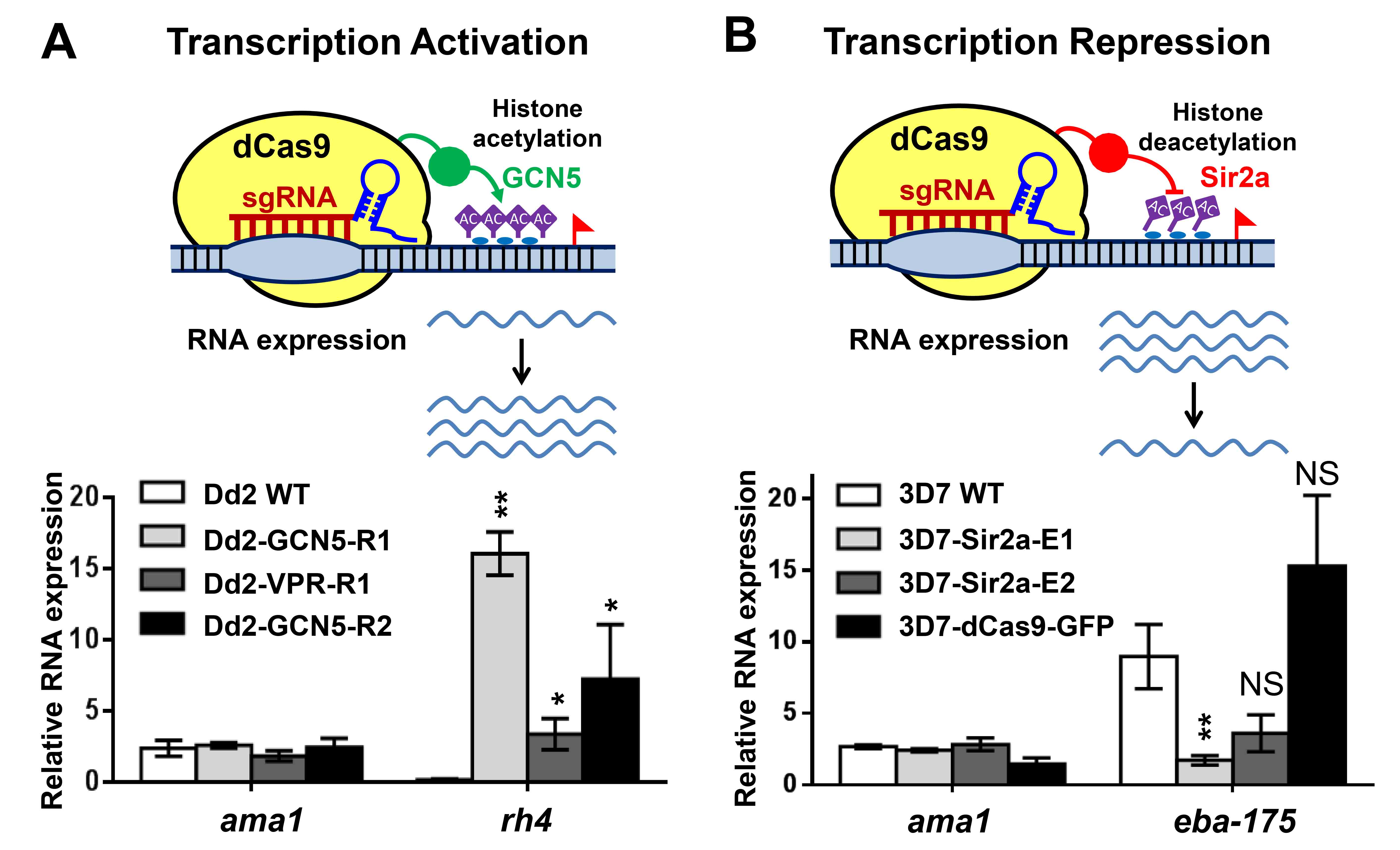The research work, entitled "Epigenetic editing by CRISPR/dCas9 in Plasmodium falciparum" has been published online in the Journal of "Proceedings of the National Academy of Sciences of the United States" on December 24, 2018.
Malaria, AIDS and tuberculosis are listed as the world's three major infectious diseases. Plasmodium falciparum is the deadliest malaria parasite. Molecular genetic manipulation is an important tool for studying the pathology and drug resistance mechanism of Plasmodium falciparum. As a result of low homologous recombination efficiency and the lack of RNAi in the Plasmodium falciparum genome, feasible gene-editing toolkits are urgently needed. Although various gene editing strategies have been successfully applied to P.falciparum, there are still serious limitations. Professor Lubin Jiang from Institut Pasteur of Shanghai, Chinese Academy of Sciences (IPS) in cooperation with his colleagues, for the first time shows that by fusing histone acetyltransferase or deacetylase to a dCas9 mutant in the CRISPR/dCas9 (clustered regularly interspaced short palindromic repeat/CRISPR-associated protein 9) system, the expression of target genes could be efficiently and specifically regulated in P. falciparum. The two epigenetic toolkits will expand current applications for functional genetics and epigenetics studies in P. falciparum, and therefore accelerate the understanding of malaria pathogenesis.
Ph.D candidate Bo Xiao from IPS, CAS is the first author of this paper. Professor Lubin Jiang (IPS, CAS) is the correspondence author. This work was supported by grants from the National Key R&D Program of China, National Science and Technology Major Project, National Natural Science Foundation of China, and National Institute of Allergy and Infectious Diseases Grants.

Fig. A, Schematic diagram of epigenetic gene activation via the CRISPR/dCas9 system
Fig. B, Schematic diagram of epigenetic gene repression via the CRISPR/dCas9 system

